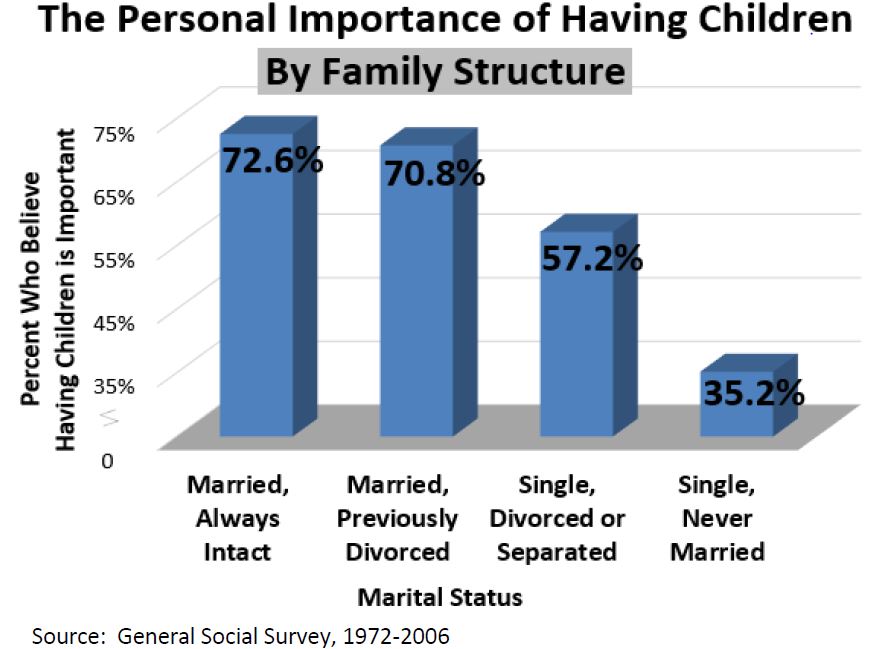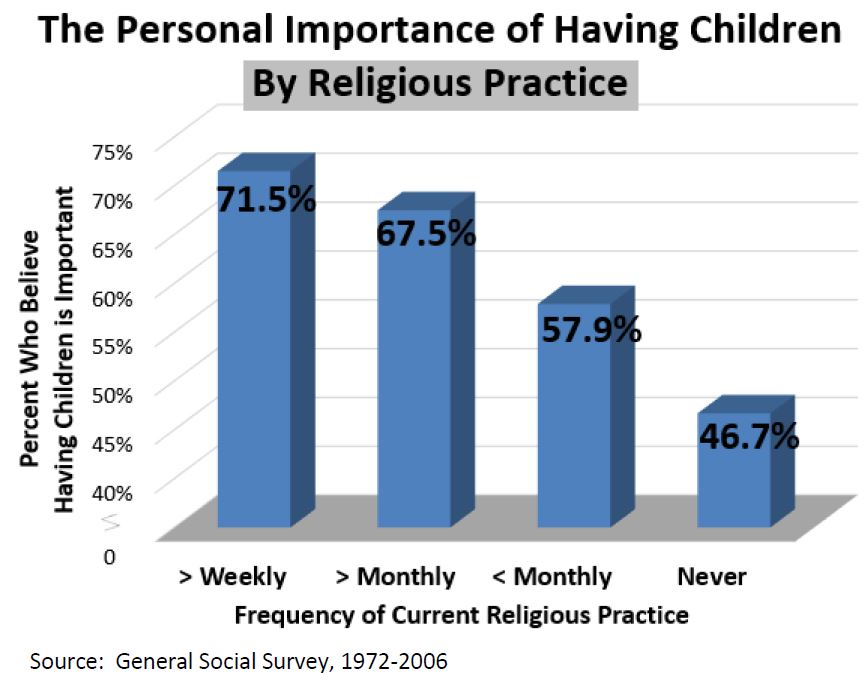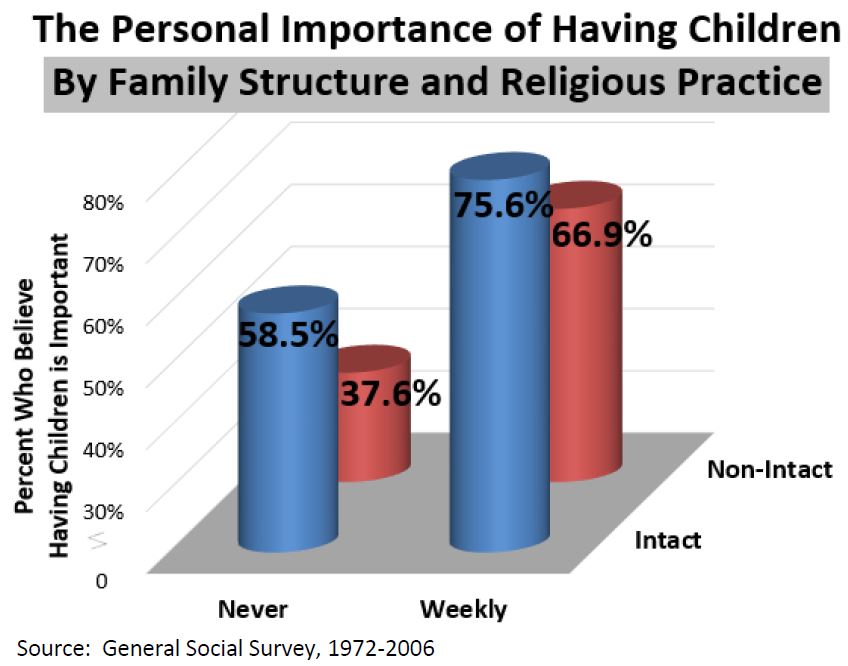Click Here to download “The Personal Importance of Having Children by Family Structure and Religious Practice”
The Personal Importance of Having Children by Family Structure and Religious Practice
Family Structure: According to the General Social Survey (GSS), 72.6 percent of always-intact married adults believed in the importance of having their own children, followed by 70.8 percent of married, previously-divorced adults, 57.2 percent of single, divorced or separated adults and 35.2 percent of single, never-married adults.
[1]
 Religious Practice:
Religious Practice: According to the General Social Survey (GSS), 71.5 percent of adults who worshiped at least weekly believed in the importance of having their own children, followed by 67.5 percent of those who worshiped between one and three times a month, 57.9 percent of those who attended religious services less than once a month, and 46.7 percent of those who never attended religious services.
 Family Structure and Religious Practice Combined:
Family Structure and Religious Practice Combined: According to the General Social Survey (GSS), 75.6 percent of adults in always-intact marriages who attended religious services at least weekly believed in the importance of having their own children, followed by 66.9 percent of all other adults who worshiped at least weekly, 58.5 percent of adults in always-intact marriages who never attended worship, and 37.6 percent of all other adults who never attended religious services
.
It is worth noting that the frequency of religious worship seems to have greater influence in shaping this attitude than marital experience does.
 [1]
[1] These charts draw on data collected by the General Social Surveys, 1972-2006. From 1972 to 1993, the sample size averaged 1,500 each year. No GSS was conducted in 1979, 1981, or 1992. Since 1994, the GSS has been conducted only in even-numbered years and uses two samples per GSS that total approximately 3,000. In 2006, a third sample was added for a total sample size of 4,510.]]>
 Religious Practice: According to the General Social Survey (GSS), 71.5 percent of adults who worshiped at least weekly believed in the importance of having their own children, followed by 67.5 percent of those who worshiped between one and three times a month, 57.9 percent of those who attended religious services less than once a month, and 46.7 percent of those who never attended religious services.
Religious Practice: According to the General Social Survey (GSS), 71.5 percent of adults who worshiped at least weekly believed in the importance of having their own children, followed by 67.5 percent of those who worshiped between one and three times a month, 57.9 percent of those who attended religious services less than once a month, and 46.7 percent of those who never attended religious services.
 Family Structure and Religious Practice Combined: According to the General Social Survey (GSS), 75.6 percent of adults in always-intact marriages who attended religious services at least weekly believed in the importance of having their own children, followed by 66.9 percent of all other adults who worshiped at least weekly, 58.5 percent of adults in always-intact marriages who never attended worship, and 37.6 percent of all other adults who never attended religious services.
It is worth noting that the frequency of religious worship seems to have greater influence in shaping this attitude than marital experience does.
Family Structure and Religious Practice Combined: According to the General Social Survey (GSS), 75.6 percent of adults in always-intact marriages who attended religious services at least weekly believed in the importance of having their own children, followed by 66.9 percent of all other adults who worshiped at least weekly, 58.5 percent of adults in always-intact marriages who never attended worship, and 37.6 percent of all other adults who never attended religious services.
It is worth noting that the frequency of religious worship seems to have greater influence in shaping this attitude than marital experience does.
 [1] These charts draw on data collected by the General Social Surveys, 1972-2006. From 1972 to 1993, the sample size averaged 1,500 each year. No GSS was conducted in 1979, 1981, or 1992. Since 1994, the GSS has been conducted only in even-numbered years and uses two samples per GSS that total approximately 3,000. In 2006, a third sample was added for a total sample size of 4,510.]]>
[1] These charts draw on data collected by the General Social Surveys, 1972-2006. From 1972 to 1993, the sample size averaged 1,500 each year. No GSS was conducted in 1979, 1981, or 1992. Since 1994, the GSS has been conducted only in even-numbered years and uses two samples per GSS that total approximately 3,000. In 2006, a third sample was added for a total sample size of 4,510.]]>
